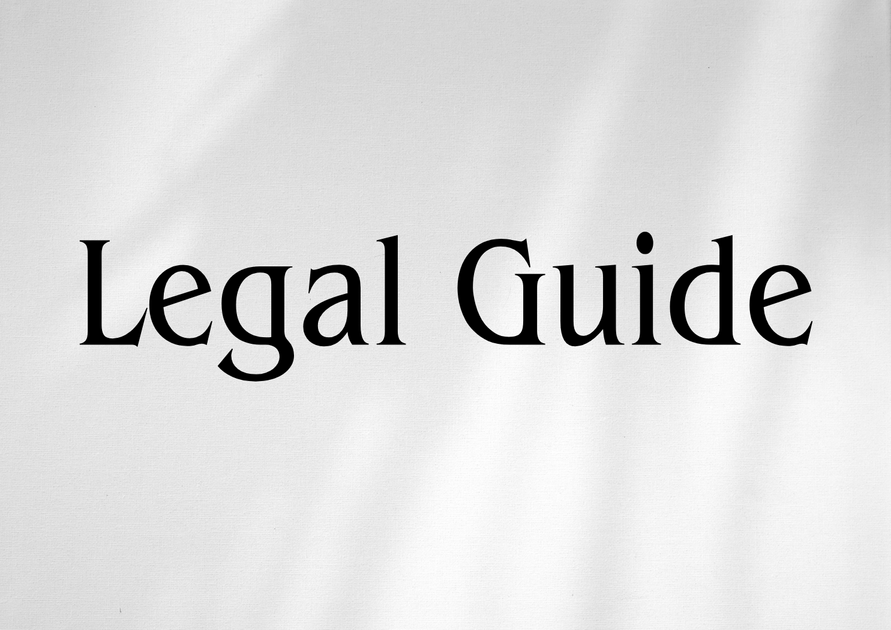Introduction to Ultimate Beneficial Ownership (UBO) Regulations in Qatar
The rapid evolution of anti-money laundering (AML) and counter-terrorism financing (CTF) measures in the Gulf Cooperation Council (GCC) region has sharpened the spotlight on Ultimate Beneficial Ownership (UBO) regulations. For UAE-based corporates, multinationals, and legal practitioners with cross-border interests in Qatar, understanding and complying with Qatar’s UBO requirements is critical. As both the UAE and Qatar intensify their compliance frameworks in line with global standards and Financial Action Task Force (FATF) recommendations, corporate governance now demands precise knowledge of beneficial ownership transparency. Recent legislative developments — such as UAE Cabinet Resolution No. 58 of 2020 and comparable Qatari Ministerial Decisions — mark a transformative period for legal compliance in the region. This article delivers a consultancy-grade examination of Qatar’s UBO regulations, thoughtfully contextualised for businesses operating from or within the UAE. Our aim is to equip executives, compliance officers, legal advisors, and decision makers with actionable insights, risk mitigation tools, and strategic guidance to safeguard reputational value and operational continuity in today’s complex legal landscape.
Table of Contents
- Overview of Ultimate Beneficial Ownership Laws in Qatar
- Qatar UBO Legal Framework and Key Regulations
- Comparison: Qatar and UAE UBO Laws (2025 Updates)
- Key Definitions and Determining UBO
- Practical Implications for UAE Businesses Active in Qatar
- Case Studies and Hypothetical Scenarios
- Risks, Sanctions, and Non-Compliance Consequences
- Best Practice Strategies for UBO Compliance
- Conclusion and Forward Outlook for UAE-Qatar Business Compliance
Overview of Ultimate Beneficial Ownership Laws in Qatar
In line with escalating international AML/CTF expectations and recommendations from FATF, Qatar has progressively fortified its legal provisions to enforce transparency and disclosure of ultimate beneficial ownership in corporate structures. The intent is clear: to restrict financial crime, increase accountability, and support the integrity of the market. Entities registered in Qatar — including local companies, branches of international corporations, and certain non-profit organisations — must now collect, maintain, and report information on their beneficial owners to the Ministry of Commerce and Industry (MOCI).
This regulatory landscape is particularly significant for UAE-headquartered businesses whose investment, operational, or cross-border interests intersect with Qatar. A failure in the UBO compliance chain, even indirectly, can expose businesses to reputational damage, financial penalties, and regulatory scrutiny in both jurisdictions.
Qatar UBO Legal Framework and Key Regulations
Foundational Legislation and Ministerial Decisions
Qatar’s modern approach to UBO regulation stems principally from:
- Law No. 20 of 2019 on Combating Money Laundering and Terrorism Financing
- Ministerial Decision No. 95 of 2019 (Implementing regulations specifying UBO obligations)
- Administrative Circulars and Guidance issued by the MOCI
Under these instruments, all legal persons registered in Qatar must identify their UBOs, maintain a central beneficial ownership register, and report UBO details to national authorities.
Core UBO Obligations in Qatar
- Maintaining accurate UBO registers (including up-to-date identification and ownership details).
- Reporting beneficial ownership information to the MOCI within required deadlines.
- Diligent record-keeping and prompt updates in the event of ownership changes.
- Ensuring that nominee directors and shareholders are properly disclosed.
- Enabling unimpeded access to competent authorities and law enforcement upon request.
Visual Suggestion: Inclusion of a process flow diagram detailing steps for UBO identification, registration, and notification in Qatar can clarify obligations for business stakeholders.
Comparison: Qatar and UAE UBO Laws (2025 Updates)
Given the similar regulatory imperatives in both Qatar and the UAE, a nuanced comparison highlights key legislative distinctions and harmonisations, especially in light of the UAE’s recent Cabinet Resolution No. 58 of 2020 and anticipated 2025 updates.
| Aspect | Qatar | UAE (2025 Updates) |
|---|---|---|
| Primary Legislation | Law No. 20 of 2019; Ministerial Decision No. 95/2019 | Cabinet Resolution No. 58/2020; Federal Decree-Law No. 20/2018 (AML) |
| Scope | All legal entities registered with MOCI, except government and wholly-owned subsidiaries |
All mainland and free zone entities, except governmental and 100% government-owned |
| Disclosure Timeline | Within 60 days of registration or ownership change | Within 15 days of incorporation/change |
| Public Disclosure | Not generally public; accessible to competent authorities | Only available to authorities; not accessible to the public |
| Penalties | Administrative fines, potential criminal liability for repeated or grave breaches | Fines up to AED 100,000 for repeated violations; risk of further regulatory action |
| Registrar | MOCI – Beneficial Ownership Register | Relevant licensing authority (Economic Departments, Free Zones) |
Such a comparison demonstrates alignment towards best practice in transparency, with differences in deadlines, applicable entities, and specific bureaucratic processes. For UAE businesses in Qatar, adopting the strictest compliance standard across both jurisdictions is advisable to manage regulatory risk.
Key Definitions and Determining UBO
How is Beneficial Ownership Defined?
Qatar’s definition of a UBO aligns with FATF standards. The UBO is the natural person who ultimately owns or controls a legal entity, either through direct or indirect ownership or through other means of control.
- Typically, an individual holding at least 20-25% of shares or voting rights is considered a UBO.
- If no individual meets this threshold, the person exercising ultimate control over the management (e.g., senior managers) is classified as the UBO.
- Nominee shareholders or directors must declare their status and provide UBO details.
Provisions for Complex Corporate Structures
In multi-tiered structures or arrangements involving trusts, foundations, or investment vehicles, UBO determination requires tracing through all intermediary layers to identify the real individual(s) in control, regardless of domicile. For example, if a UAE holding company controls a Qatari LLC via multiple subsidiaries, each layer’s shareholding and control rights must be analyzed and fully documented to satisfy disclosure.
Practical Implications for UAE Businesses Active in Qatar
For UAE corporations, family-owned enterprises, and multinationals with Qatari operations or investments, UBO regulations present several practical considerations:
1. Integrated Cross-Jurisdictional Compliance Management
- Ensure your group compliance programme covers both Qatar and UAE UBO requirements, as well as other operational jurisdictions.
- Maintain synchronised registers with harmonised definitions of UBO, updated in real time across all branches and subsidiaries.
- Assign compliance officers with experience in GCC cross-border legal frameworks.
2. Documentation and Safe Recordkeeping
- Compile and safekeep the following for each UBO: full name, national identification, address, details of shareholding or control apparatus, and changes in status.
- Implement robust information security protocols, in anticipation of regulatory investigation or audit requests.
3. Special Challenges: Trusts, Foundations, and Nominee Arrangements
- For trusts or similar structures, disclose settlors, trustees, protectors, and beneficiaries in line with Qatari requirements, going beyond mere custodial information.
- For nominee directors, ensure declarations are lodged promptly with the MOCI and relevant authorities in the UAE.
4. Onboarding and Ongoing Due Diligence
- Revise onboarding and KYC protocols to ensure prospective business partners, clients, and UBOs are subject to robust due diligence mechanisms.
- Institute regular, recurring updates to beneficial ownership registers in accordance with regulatory triggers, such as share transfers or capital injections.
Case Studies and Hypothetical Scenarios
Case Study 1: UAE Family Business Expanding to Qatar
Scenario: A UAE-based family business with multiple beneficial owners forms a new LLC in Qatar to manage logistics operations. Various family members hold indirect stakes through holding companies in the UAE and the British Virgin Islands.
Analysis: The Qatari entity must:
- Trace all intermediary entities (including foreign holdings) to natural persons with an aggregate ownership or control interest exceeding 20%.
- Lodge all beneficial owner details with MOCI securely. The use of foreign nominees requires explicit disclosure and justifications.
- Ensure parallel compliance with UAE Cabinet Resolution No. 58/2020, in case disclosure discrepancies trigger authorities’ queries in either jurisdiction.
Case Study 2: International Corporation Branch Network
Scenario: A multinational enterprise with dual UAE and Qatar registered branches enters into a strategic M&A transaction. Changes in ultimate control occur at parent company level in Europe.
Analysis: Both branch entities must:
- Promptly update their UBO registers and re-file notifications with Qatari and UAE authorities, documenting all control changes through the chain of ownership.
- Perform new onboarding for UBOs per AML/CTF due diligence measures.
- Anticipate further scrutiny from both countries’ regulators, and prepare supporting corporate records for verification.
Case Study 3: Non-Profit Entity
Scenario: A UAE-based non-profit sets up an affiliate in Qatar, directed by multiple international funders.
Analysis: Despite their non-profit status, Qatari law requires UBO declarations to prevent abuse for financial crime. All individuals with effective control, regardless of their formal title, must be declared and documented.
Risks, Sanctions, and Non-Compliance Consequences
Key Risks for Businesses
- Financial Penalties: Fines can be imposed for failure to lodge, update, or maintain accurate UBO registers. In severe cases, these may be compounded or escalate to criminal charges.
- Operational Interruptions: Non-compliant companies may see business licences suspended or revoked, limiting access to Qatari markets.
- Reputational Harm: Publicised enforcement actions can damage brand equity and partner confidence, especially in regulated sectors.
- Regulatory Scrutiny Across Borders: UAE and Qatari authorities collaborate on major matters, increasing the likelihood of reciprocal investigation and enforcement.
Penalties Table: Qatar vs. UAE (2025 Updates)
| Offence | Qatar: Sanction/Consequence | UAE: Sanction/Consequence |
|---|---|---|
| Failure to Register UBO | QAR 50,000 – QAR 500,000 (administrative fines), possible criminal referral | Up to AED 100,000 for repeated offences |
| Providing Inaccurate UBO Data | Fines, criminal prosecution for wilful misrepresentation | Fines, risk of trade licence revocation |
| Failure to Update Register | Incremental daily fines; risk of suspension | Incremental fines; suspension of business activities |
Visual Suggestion: Add a compliance checklist table enumerating documentation steps, timelines, and responsible officers for UBO risk mitigation.
Best Practice Strategies for UBO Compliance
Actionable Recommendations for UAE Firms in Qatar
- Appoint Dedicated Compliance Officers: Assign or hire legal and compliance professionals versed in GCC AML/CTF legislation to manage multijurisdictional requirements.
- Centralize Beneficial Ownership Documentation: Utilise secure digital platforms to maintain UBO registers accessible to relevant authorities in both jurisdictions.
- Conduct Regular Training: Ensure all senior management and directors are aware of their legal responsibilities regarding accurate UBO reporting.
- Institute Automatic Alerts: Adopt technology that flags any corporate events (share allotments, resignations, structural changes) that may trigger notification requirements.
- Legal Review and Audit: Commission regular audits of your UBO documentation processes to ensure sustained alignment with the latest Qatari and UAE legal updates.
- Engage with External Advisors: Proactively consult legal counsel with cross-border regulatory experience, especially when navigating complex trust or investment structures.
Visual Suggestion: Incorporate a summary flowchart visualising the UBO compliance process, from initial onboarding through to change notification and regulatory liaison.
Conclusion and Forward Outlook for UAE-Qatar Business Compliance
Qatar’s UBO regulations are now an essential consideration for UAE-based businesses and legal practitioners, imposing strict transparency and accountability standards that reflect international best practice. The harmonisation of UBO frameworks between the UAE and Qatar signifies a region-wide commitment to eradicating financial crime — but also raises the stakes for compliance management. In the years to come, heightened cross-border cooperation and digitalisation of compliance processes are expected, making proactive compliance not just a best practice, but a business imperative.
For UAE businesses with Qatari interests, the pathway to risk mitigation lies in robust documentation, agile legal oversight, and close monitoring of ongoing regulatory updates. Given the pace of legislative evolution, organisations should treat beneficial ownership transparency as a core pillar of their corporate governance and risk strategy.
To remain compliant and competitive, executives and legal teams are advised to:
- Monitor ongoing legislative developments in both countries via official portals and legal gazettes;
- Undertake periodic compliance reviews and training;
- Invest in legal technologies that facilitate efficient UBO recordkeeping and reporting.
Staying ahead of the compliance curve will be a defining factor in sustaining trust, access, and commercial success across the GCC’s increasingly regulated business landscape.




